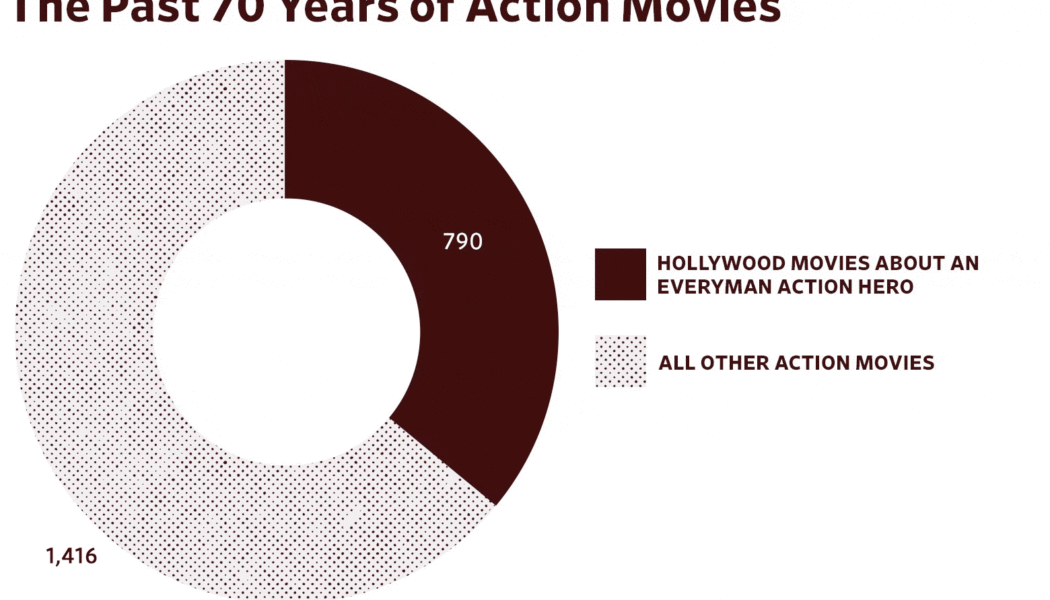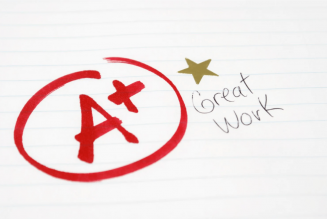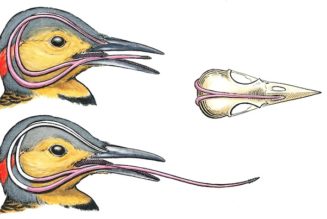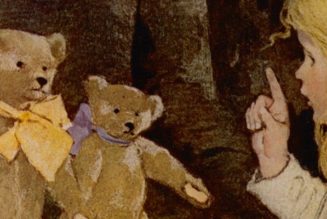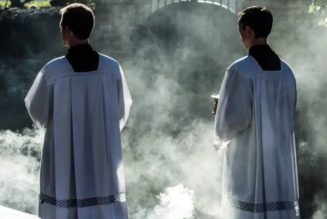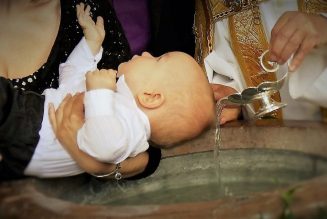I wasn’t the first to make the connection, but once I noticed it, it was everywhere. You walk past a poster for a new movie and think, Why is every action hero named Jack, John, James, or, occasionally, Jason?
I turned to my friends and colleagues, asking desperately if they had also noticed this trend, as I made my case by listing off well-known characters: John Wick, Jason Bourne, Jack Reacher, John McClane, James Bond, Jack Bauer, and double hitter John James Rambo.
Advertisement
I worried I might have fallen victim to the Baader-Meinhof phenomenon. Now that I had become aware of it, was each glimpse of a John Wick ad reaffirming my unsubstantiated theory?
As a data researcher, I had to get to the bottom of it. What followed was months of categorizing hundreds of action movies, consulting experts in the field of name studies, reviewing academic papers and name databases, and seeking interviews with authors and screenwriters as to the rationale behind their naming decisions. It turned out I had only scratched the surface.
The Data
The first step was to define my data set. Since there exists no one official pantheon of action heroes, I started by turning to the first port of call for many researchers: Wikipedia. According to its list of action movies, 2,206 modern movies had been released in the genre, beginning in 1962 with Dr. No, the first movie to star James Bond. From these movies, I narrowed down the list to include only Hollywood productions and movies centered on a male everyman–type hero. The trope is well known: A lone man facing seemingly unbeatable odds conquers any foe put in his way—be it his government, a terrorist cell, or a natural disaster. Gone from the list were movies that featured ensemble casts or were about buddy cops or female heroes. (This last category didn’t take long to remove.) If it was not immediately clear whether the movie was built around a single man of action, I dug deeper, consulting trailers, plot summaries, and other marketing materials to make an informed decision. (This also led me to watch some great action movies I’d never heard of, like 2002’s Extreme Ops.) After going through all 2,206 action movies, I was left with 790 movies featuring an everyman-type lead.
Advertisement
Advertisement
Advertisement
Advertisement
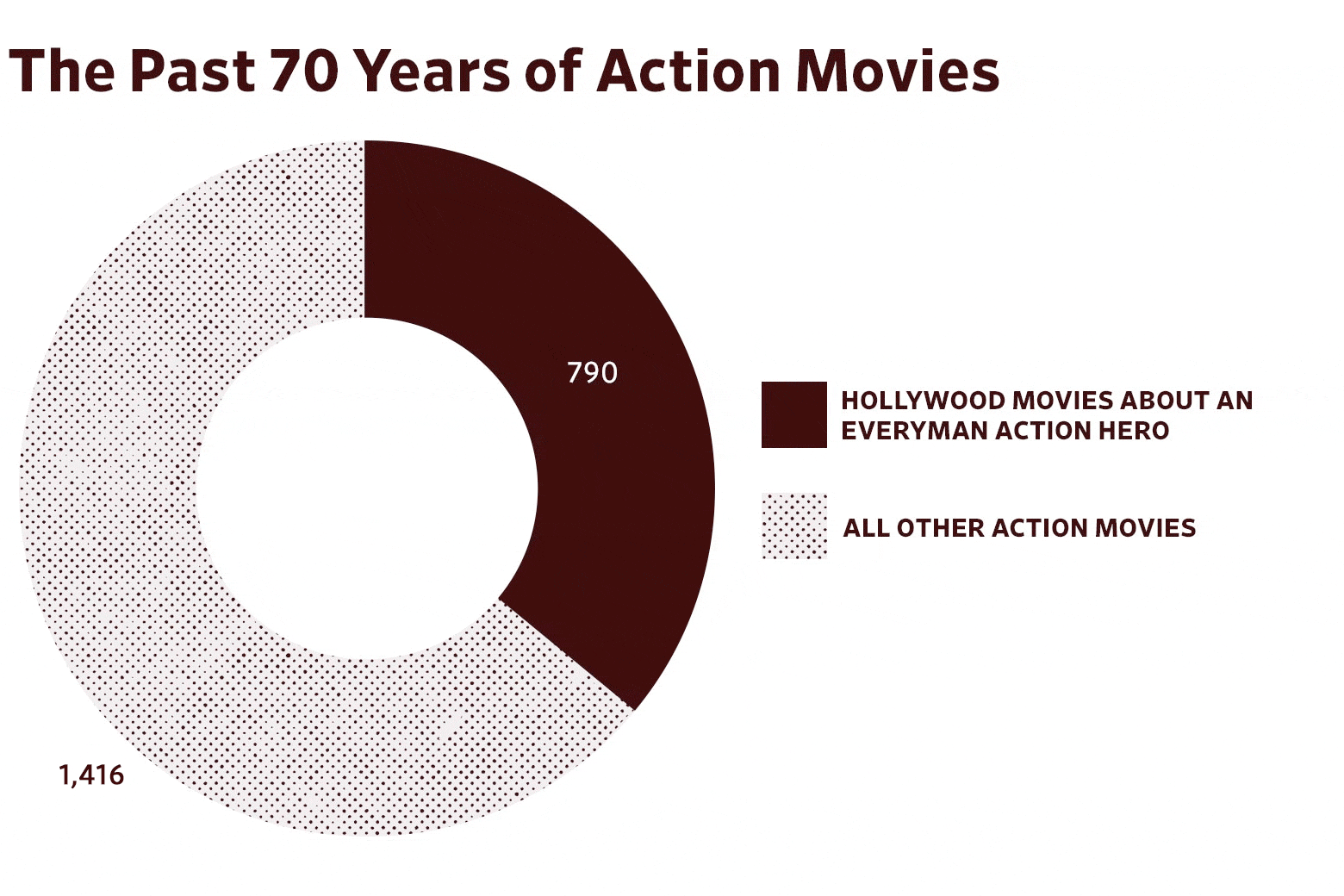

I went through 790 plot summaries and wrote down each of the heroes’ names. Excitedly, I clicked Sort on the spreadsheet, not knowing what I’d find. After all, I’d already sunk quite a few hours into this. But as I scrolled down, I saw that my hunch was correct: Of these 790 movies, 33 percent have a male protagonist with a first name starting with the letter J. Thirty-three percent! The most popular J name among these strapping warriors was John, with 74 movies, followed by James, with 50 movies, and Jack, with 37. The second-most-common letter, M, with names like Max and Michael, showed up a comparatively measly 7 percent of the time.
Advertisement
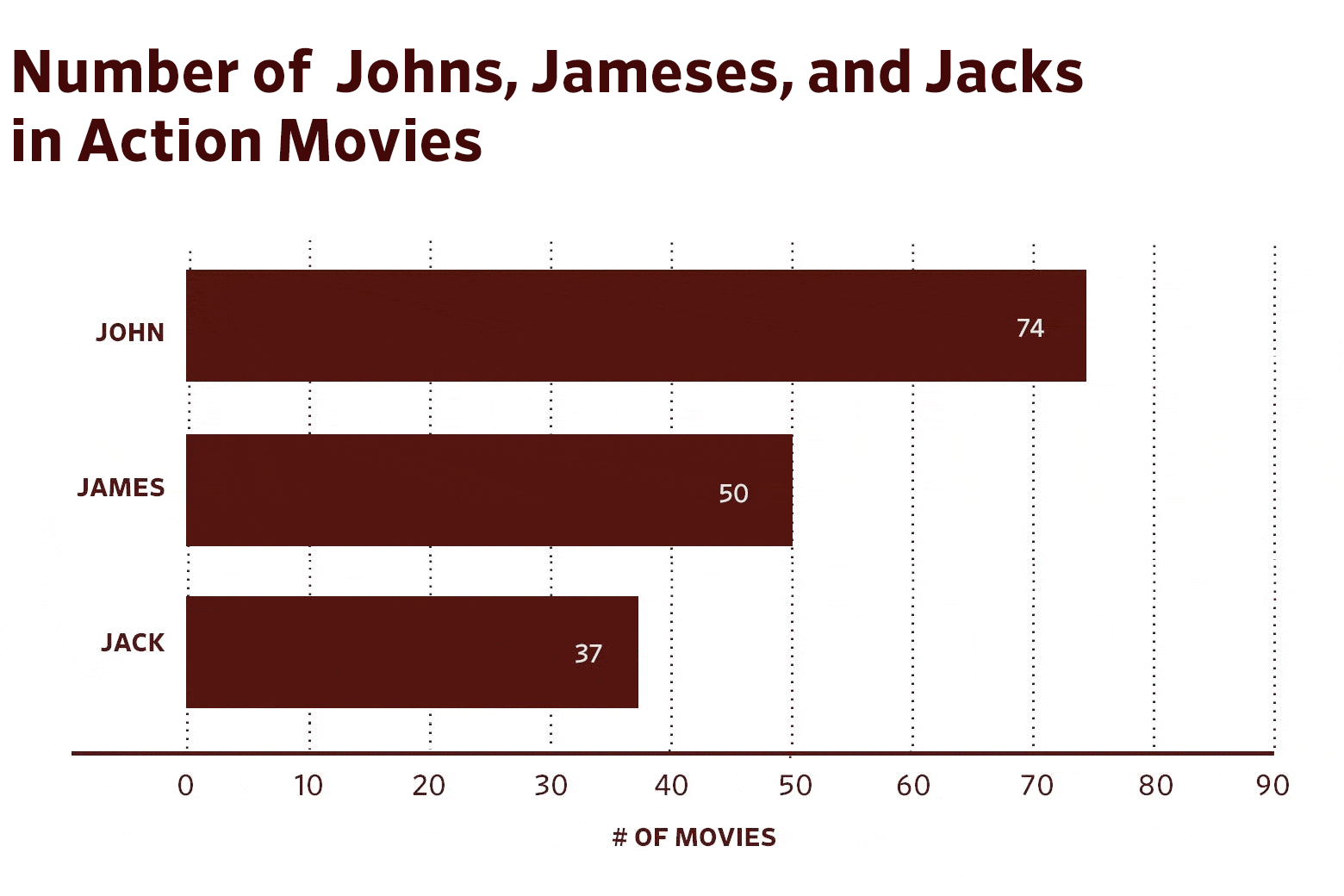

Dispensing With Occam’s Razor
I knew that before I made too much of this, I should first consider the simplest possible explanations.
Advertisement
Advertisement
First, and simplest of all, could it be that this apparent phenomenon merely matches naming trends in the general population? But a closer look revealed that this was not the case. While James was indeed the most popular name in the United States from 1922 to 2021, and John was the third-most-popular name, the second, fourth, and fifth were Robert, Michael, and David, respectively, names that aren’t nearly so well represented in action movies. In my data set, there were 50 movies centered on a James, and 74 centered on a John, while there were a mere five about a Robert, only 12 about a Michael, and a scant five about a David. If the names of action heroes simply reflected the most common names in the United States, we would expect to see more Michaels and Davids, and far more Roberts, leaping across the silver screen. Even if we added in nicknames like Mike, Bob, and Dave, these names represented only a fraction of our heroes.
Advertisement
Advertisement
Advertisement
According to the Social Security Administration, over the past 100 years, 177,238,032 males have been born in the United States. In the agency’s data set of the Top 100 most popular male names of the past 100 years, there are 17 J names, and if you add up their percentages, they account for only 12 percent of the U.S. population over the past 100 years, well below the 33 percent I saw in my data set.
Second, could it be that my data set was not representative? While Wikipedia’s crowdsourced list seems robust and, by all signs, was pretty accurate, some movies might not be included or might be miscategorized as action movies. But even looking at a different data set—the Top 200 highest-grossing action movies, as collected by thenumbers.com—yielded a similar result. Nearly half (90) of these 200 box-office hits centered on a single male lead. And of these 90 single male leads, 30 (33 percent) played characters whose first names start with the letter J.
Advertisement
Advertisement
Finally, could it be that a few prolific J-named characters, such as J-Name Hall of Famer James Bond, were having an outsize impact on the data? This theory was at first appealing. Taking a closer look at these 790 movies, it’s true that 25 of them were entries in the 007 franchise. However, other action heroes, such as Bruce Wayne, were nearly as omnipresent: The caped crusader was the principal character in 18 movies. Even after removing all sequels, prequels, and spinoffs, and stripping the data to mention each character only once, leaving us with only 618 out of the 790 original movies, J-named characters were still disproportionately represented. There were 188 unique characters whose names start with the letter J, more than 30 percent of the total data set.
Advertisement
Advertisement
Having confirmed my initial hunch and ruled out the most obvious explanations, I was back to the drawing board. What was it about these musclemen that seemed to demand this one magic letter? My reporting led me to four different theories.
The “Average Joe” Theory
As I mentioned, I’m not the first to notice this. In 2010 a keen-eyed reader wrote into E! News about a subset of this phenomenon, asking, “Why must every major film hero be named Jack?” The outlet’s Answer B!tch columnist responded by suggesting that this was because Jack was a safe name with roots back to childhood fairy tales, with the English origins of Jack being a shorthand reference for an everyguy.
Advertisement
This theory might not explain the entire J-name phenomenon, but perhaps the Answer B!tch was onto something. To find out, I got in touch with Richard Coates, professor emeritus of onomastics (the study of names) at the University of the West of England. Coates first confirmed that John’s reputation for being one of the English-speaking world’s most common names goes back centuries. In the poll tax returns in England between 1377 and 1381, for example, more than 30 percent of all males were named John. In Essex, a county in the east of England, the figure went as high as 46 percent. So it’s natural that by the end of the 14th century, according to the Oxford English Dictionary, we came to use John and its accompanying pet name Jack as generic names for “an ordinary man” or “a hypothetical man.” Starting around the 16th century, we got our first John Doe, and Jack was soon deployed in expressions for commoners like “Jack-of-all-trades,” “Jack-tar,” and “every man Jack.”
Advertisement
Advertisement
Advertisement
Advertisement
Coates had explained the history of at least a couple of J names in England, but what about in the United States? I reached out to the American Name Society, whose then-president Laurel Sutton directed me to Jennifer Moss, who is the author of The Baby Names Workbook, the co-host of The Baby Names Podcast, and the founder and CEO of BabyNames.com. Moss explained: “Here in the U.S., the name John was the No. 1 name for boys at the turn of the 20th century and remained in the Top 20 through 2008. As it kind of ‘aged out’ with the previous generations, people started using Jack (the nickname) as a given name. It has a friendlier, more upstanding association. Possibly because it was a more familiar, friendly form of one of the most common names of the last 100 years.” Meanwhile, James peaked between 1940 and 1960, when it reached the No. 1 spot in the United States, and Joe surged in popularity during roughly the same period. It’s no coincidence this was also around the same time that John Doe and Jack Tar were joined by Joe Six-Pack, Joe Schmo, Joe Blow, Joe Public, and the average Joe, in addition to such less remembered figures as Joe College, Joe Soap, Joe Bloggs, Joe Lunch Bucket, and Joe Doakes. Sure enough, there are 10 unique characters in the action movie data set called Joe—that’s 10 “average Joes.”
Advertisement
Advertisement
Put another way, as screenwriters chose names for their everyman action heroes, it makes sense that they chose names that were synonymous with the everyman. Still, it seemed this couldn’t explain the whole phenomenon.
The “Honest John” Theory
But what if there’s more to these names than the sense that they represent the common man? Why do they also seem to convey the sense that these everymen, under their layers of impenetrable muscle, also carry a heart of gold? Thankfully, there was data on this too. In the 1960s, D. Sheppard conducted an experiment where 146 people in the U.S. were asked to associate personal characteristics with 17 Christian names, including the name John. The characteristics were “trustworthy,” “kind,” “young,” “good-looking,” “sociable,” “aggressive,” and “particular person.” John was found to be the most trustworthy name, and Sheppard noted that a “name which is rated as being socially desirable by many subjects on one characteristic tends to be thought desirable on the other characteristics also.” Sheppard considered whether phrases such as “honest John” led to the associations seen in the data. In the end, Sheppard wrote, the “only conclusion of any practical value appears to be for those who are lucky enough to have been given a name such as John, or Ann, for they may be able to take advantage of the fact that if people know nothing about them other than their name, they will expect them to be nice persons.”
Advertisement
Advertisement
Advertisement
Advertisement
A 2011 study by LinkedIn analyzed more than 100 million profiles and arrived at a similar conclusion. It found that the most common names for male CEO positions were short or shortened versions of popular names. Jack was in their No. 3 spot. The networking site’s senior data scientist at the time, Monica Rogati, noted that Frank Nuessel, a professor of linguistics at the University of Louisville, “suggests that shortened versions of given names are often used to denote a sense of friendliness and openness.”
During my exchanges with Coates, the professor of onomastics, he asked me if there were many bad guys named Jack, John, or James in these action movies. This question sent me spiraling back to the data to spend another few days finding all the villain character names in the 790 movies. What I found surprised me.
Advertisement
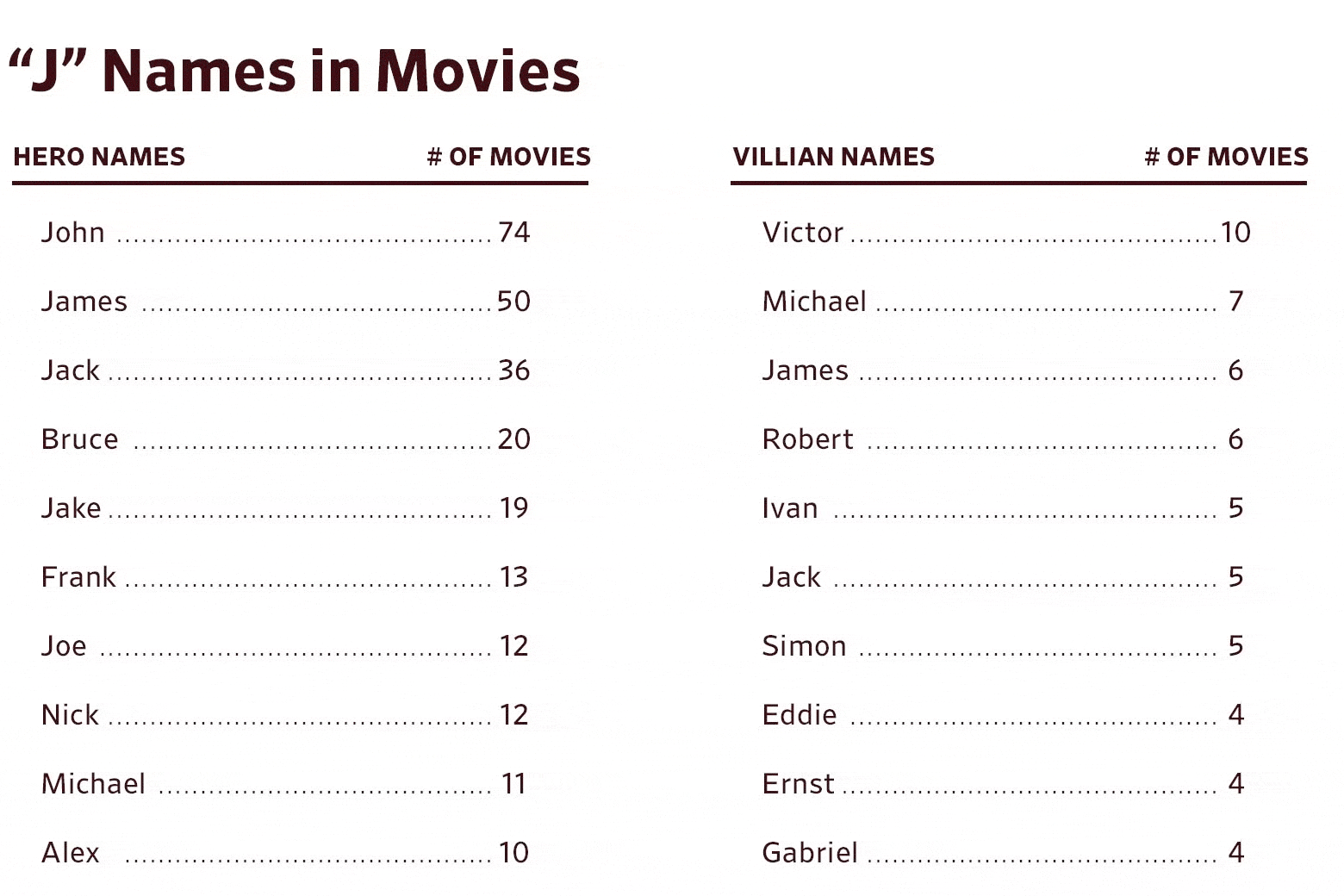

Advertisement
Out of those 790 movies, 542 featured single male antagonists. I added up all the names together, expecting to see a few popular villainous names emerge, but this was not what the data showed. The most frequent fiendish name in the data was Victor, seen in only 10 movies. Villains had names beginning with J only 7 percent of the time.
Advertisement
Advertisement
When I went back to Coates with these findings, he made another connection: V for Victor as V is for Villain. Either subliminally or intentionally, the creators of these 10 movies perhaps wanted to help audiences associate these characters as bad guys as quickly as possible. But perhaps there was more going on, and the names weren’t meant to convey “evil” so much as they were meant to convey “different.” My data showed that heroes are more likely to be share the same name as other fictional heroes, whereas the opposite is true for villains. Sixty-three percent of movies had villains with names seen only once in the data set, compared with 24 percent of hero names. In other words, whereas hero names often seemed to convey that the hero was not just an honest John but an average Joe, one who was nearly always a white man born in the United States, villain names seemed to convey that the villain was not, often leaning on stereotypes. And sure enough, going up against our Joe Six-Packs, we often had bad guys with such names as Ivan and Yuri, perfect for Cold War evildoers. Not to mention, harking back to even older American wars, the Williams and Georges, which were perfect for the trope of haughty British villains who deserved to be taken down a peg.
Advertisement
Advertisement
Advertisement
Still, how much of this repetitive hero naming was subliminal and how much was intentional? At this point in the investigation, it was time to consult the screenwriters.
The Auteur Theory
Looking back, Jason, the leader of the Argonauts, is one of the most well-known mythological J-named heroes. While it’s impossible to ask Apollonius of Rhodes why he named his hero Jason, other authors are easier to get answers from.
Advertisement
In the 2009 book The Lineup: The World’s Greatest Crime Writers Tell the Inside Story of Their Greatest Detectives, author Lee Child explained that Jack Reacher’s first name came from a rule he had given himself: “Don’t do what the others are doing.” According to Child, “There was a miniature rash at the time of characters with cute or complex first names. So I looked for the simplest and plainest name I could find. I chose Jack, and not as a diminutive for John, either. It’s just Jack. … I wanted to underpin Reacher’s blunt and straightforward manner with a blunt and straightforward name.” This is emphasized in the first few minutes of the movie Jack Reacher, when the police, who are trying to find Cruise’s ex-Army drifter, say, “His name is Jack. Not John, but Jack.”
Advertisement
According to Henry Morrison, author Robert Ludlum’s literary agent, Jason Bourne was similarly designed to be an everyman: “He manages to survive in a very hostile world by being ordinary and coping.”
The dialogue for Speed’s Jack Traven was largely written by Joss Whedon so that Keanu Reeves’ character was “just the polite guy trying not to get anybody killed” instead of the maverick hotshot he was originally written as.
All of these examples show that these characters were written very deliberately as everymen with the names to match, but other screenwriters have suggested a more personal angle. In the book Die Hard: The Ultimate Visual History, authors David S. Cohen and James Mottram chronicle the evolution of the name John McClane. While the surname changed, the first name always began with J, from Joe Leland to John Ford, until screenwriter Jeb Stuart, “swayed by his own Celtic roots,” settled on John McClane. As writers are reaching for the names of their characters, they might be drawing inspiration from those around them. Take, for example, Derek Kolstad, the writer behind the thriller franchise John Wick, who drew direct inspiration from his grandfather John Wick.
Advertisement
Advertisement
Or could these filmmakers be modeling these heroes after themselves? Director James Cameron, who himself possesses a J name, seems to write almost exclusively J-named characters: Jake Sully in Avatar, Jack Dawson in Titanic, and John Connor in Terminator, as well as, writing alongside Kathryn Bigelow, Johnny Utah in Point Break. How many of these J-named heroes were written by J-named screenwriters? In the data set, I made a note of all the authors and screenwriters who had a name that started with J. Of the 790 movies, 143 (18 percent) had at least one John, James, Joshua, or another J name listed as a writer. This showed that these screenwriters might be influenced, however consciously, by their own names, but that couldn’t be the whole story. Interestingly, not one Jack is listed as a writer on any of the movies.
Keanu’s Theory
Ten years ago, when a Quora user asked, “Why are so many leading men in movies called Jack?” the movie critic Carrie Rickey responded with an anecdote about the time, decades earlier, when she asked Keanu Reeves this same eternal question. Reeves is a serial offender, having played Jack Traven in Speed, Johnny Utah in Point Break, Jonathan Harker in Bram Stoker’s Dracula, John Constantine in Constantine, and Johnny Mnemonic and John Wick in the action movies of the same name. Reeves replied to Rickey, “When you say ‘Jack,’ the shape your mouth takes, the breath it takes, signifies loner, hero, renegade. … Think John the Baptist, Johnny Guitar, Johnny Suede, Jack the Ripper, jack-o’-lantern.”
Advertisement
Advertisement
Advertisement
Could Reeves be onto something? Searching for more information about this, I found a paper written by Katerina Papantoniou and Stasinos Konstantopoulos titled “Unravelling Names of Fictional Characters,” which explored the relationship between the names of fictional characters and the way the names sound. When I got in touch with them, they suggested that some words are more positive sounding, while others sound more negative. At an acoustic level, before any meaning is assigned to a sound, some words might simply sound better. They wrote, “So to test our hypothesis we tried to find a situation where names are selected or created as arbitrarily as possible. The names of fictional characters seemed promising. The assumption here was that a creator is (explicitly or implicitly) more inclined to give positive names to protagonists and negative names to antagonists than vice versa.” During their investigation, they found that there was indeed a correlation between how fictional character names sound and the role they play in the plot of the fictional work they appear in.
Advertisement
Advertisement
There was a twist, however. The researchers found that names with voiced consonants, which include the J in John, Jack, and James, are more likely to relate to villains, while the more vowels in a name, the more likely that a character is a goodie. This suggests that names like John, Jack, and James might be the names for these heroes despite the way that they sound, not because of it. While there are certain phonetic similarities between the top action-hero names that go beyond the fact that they start with the letter J—don’t even get me started on the fact that the top eight hero names are all a single syllable, while the top villain names are mostly multiple syllables—it seems unlikely that Reeves’ theory can be supported by the data.
Riding off Into the Sunset
Advertisement
Advertisement
At the end of all of this, it seems no one theory alone can explain the popularity of these J names. It’s not just that they are the most popular names, though that helped cement the idea that these names stood for the everyman. And it’s not just that they stand for the everyman, though that seems to have influenced the idea that many of these names are inherently trustworthy. Nor is it just how they sound, though it seems unwise to question John Wick. Their reputation seems to have fed into their popularity, and their popularity seems to have fed into their reputation, until the two became a knot that only a hero greater than I could untangle.
Advertisement
At least now, whenever I see those Jack Reacher posters, I can tell everyone who happens to be around me that this really is a thing. But for how long?
Jennifer Moss, from BabyNames.com, told me over email, “When I sit down to watch a new show and hear that the protagonist is named Jack, I think ‘Isn’t that over, yet?’ ” Going back to the data, I wanted to see how the trend has changed over time and whether we are seeing an end to it. From the data dating back to 1962, J-named action stars overtake all other names a few times, in the early 1970s, for a moment in 1984, and last in 2002. It’s already been more than two decades since the J’s reigned supreme.
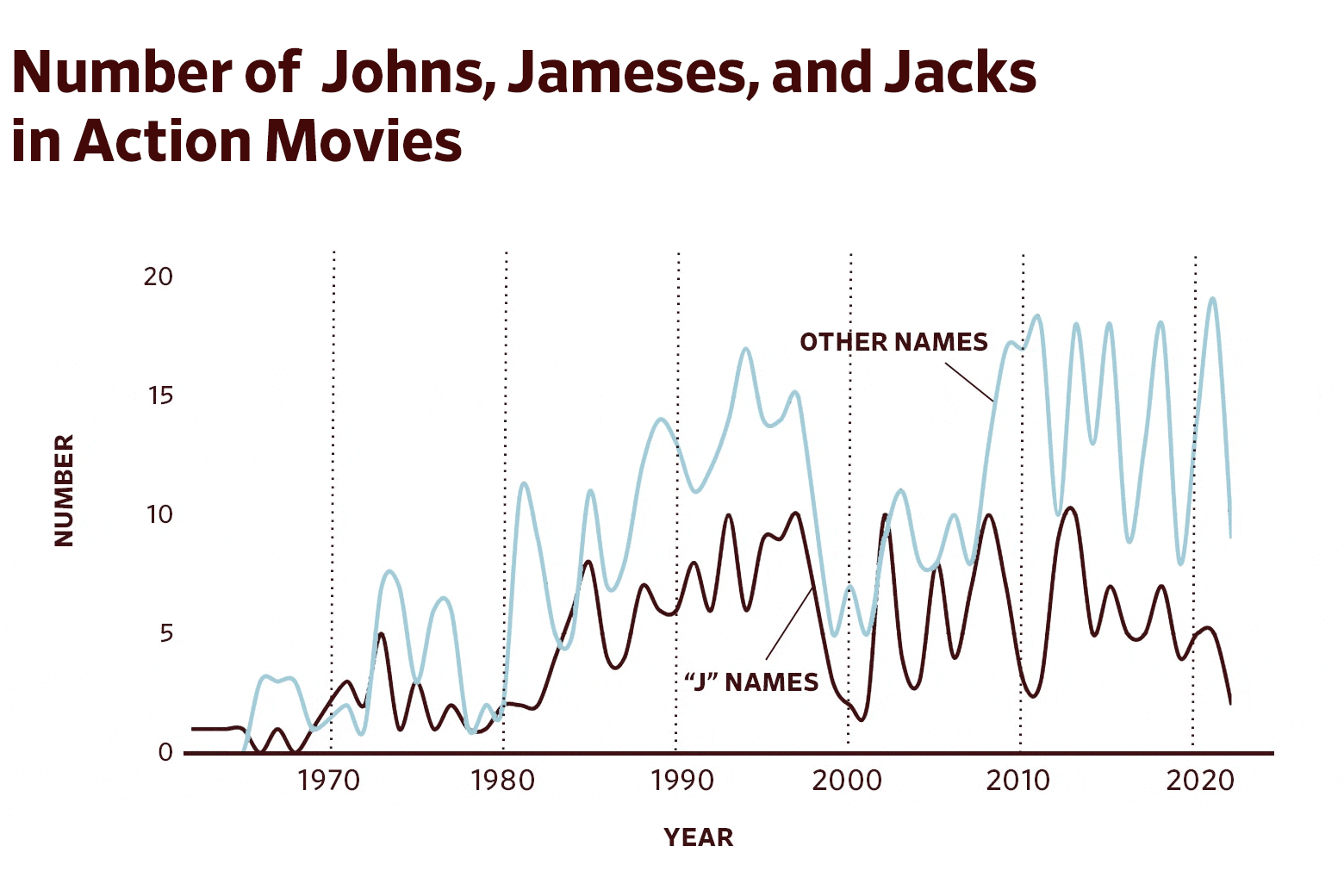

The data suggest that the number of J-named characters are slowly dwindling. Taking 2019 as a snapshot, 38 percent of all action stars had a J name, while a year later, that number was down to 25 percent.
However, in a month that will see John Wick, John Luther, and Jake Sully battle for the top spot at the box office, not to mention Joel Miller battling zombies in the series du jour The Last of Us, it may seem hard to believe that this will ever go away. These characters have been overcoming seemingly insurmountable odds for more than half a century, and I for one will not be betting against them.
